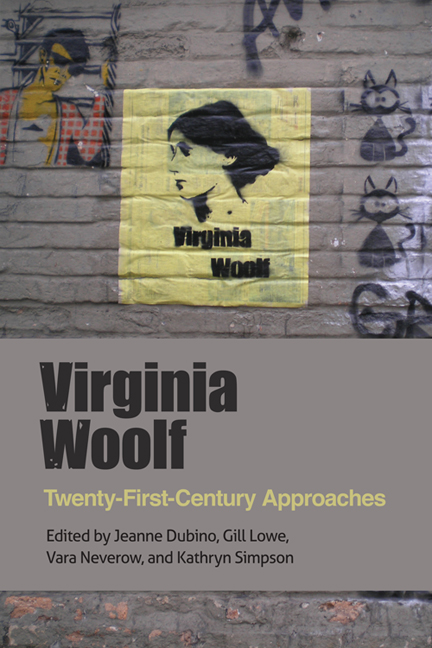Book contents
- Frontmatter
- Contents
- Acknowledgements
- Contributors
- Abbreviations
- Introduction
- PART ONE Self and Identity
- PART TWO Language and Translation
- PART THREE Culture and Commodification
- PART FOUR Human, Animal, and Nonhuman
- 7 The Bispecies Environment, Coevolution, and Flush
- 8 Posthumanist Interludes: Ecology and Ethology in The Waves
- PART FIVE Genders, Sexualities, and Multiplicities
- Index
8 - Posthumanist Interludes: Ecology and Ethology in The Waves
from PART FOUR - Human, Animal, and Nonhuman
Published online by Cambridge University Press: 05 August 2016
- Frontmatter
- Contents
- Acknowledgements
- Contributors
- Abbreviations
- Introduction
- PART ONE Self and Identity
- PART TWO Language and Translation
- PART THREE Culture and Commodification
- PART FOUR Human, Animal, and Nonhuman
- 7 The Bispecies Environment, Coevolution, and Flush
- 8 Posthumanist Interludes: Ecology and Ethology in The Waves
- PART FIVE Genders, Sexualities, and Multiplicities
- Index
Summary
For some years now critics have demonstrated that The Waves (1931) is not solely concerned with the internal workings of the human mind. Sections of Woolf's most experimental novel that clearly reach outside human psychology are the ten – if we include the final line of the novel, ‘The waves broke on the shore’ (TW: 248) – italicised interludes, which have been read by critics in three primary ways: as a formal structuring device, linked to Woolf's concern with visual art and music; as an allegory of empire, demonstrating Woolf's anti-imperialist politics; and as a representation of the natural world, evincing Woolf's interest in nonhuman environments. In the first approach the interludes are seen to alternate between an Impressionist and Post-Impressionist aesthetic (McLaurin 1973: 84; Goldman 1998: 189), or to resemble a ‘musical symphony’ (Henke 2007: 128). The second approach points to the solar imagery of the interludes as a retort to the popular nineteenthcentury expression ‘the sun never sets on the British Empire’, in which they offer an allegory either of ‘how the imperial impulse continues’ (Dickinson 2007: 26), or of imperial decline (Marcus 1992: 137, 155). The third approach – which will be my central focus – finds Woolf's depiction of the natural world in the interludes re-emerging as a concern for critics in recent years. While conceiving of The Waves Woolf famously wrote that she wanted to ‘saturate every atom’ (D 3: 209), and the interludes are definitely ‘nature-saturated’ (Scott 2012: 123). Critics have considered their depiction of a natural world that escapes human capture: the interludes show ‘there is much that is out of reach of human intelligence and perception’ (Monaco 2008: 160), and they reveal ‘inhuman rhythms’ or ‘cosmological forces’ (Rohman 2011: 14). Such readings return us to Frank McConnell's influential essay on The Waves, which suggested that ‘the “nature” of the italicised passages is neither the anthropomorphic and sympathetic nature of the pastoral nor its malevolent but equally anthropomorphic contrary’; the interludes do not merely reflect human concerns, but illustrate a ‘self-sufficient unhumanity’ (1986: 63).
- Type
- Chapter
- Information
- Virginia WoolfTwenty-First-Century Approaches, pp. 148 - 166Publisher: Edinburgh University PressPrint publication year: 2014



